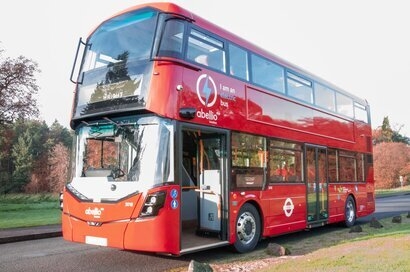
MEEF provided debt and equity funding to Rock Road, a subsidiary of Rock Rail, who financed the buses.
As part of the assessment, DNV undertook an independent review of the key risks associated with deploying electric bus fleets, including analysing aspects of the battery, chassis, and estimated CO2 savings.
Electrification is key to energy independence, energy efficiency and the decarbonisation of economies, Nations are surging ahead to meet their net zero and energy security ambitions. DNV’s UK Energy Transition Outlook (ETO) highlights that the battery-electric vehicle share in the total commercial fleet is expected to reach 13 percent in 2030 and 80 percent by 2050, lagging behind the passenger vehicle segment but expected to accelerate with improvements in technology, financing and anticipated zero emission mandates.
“As we strive to decarbonise and meet net zero ambitions, the electrification of road transport will have one of the most visible effects on everyday life” said Hari Vamadevan, Executive Vice President, and Regional Director UK & Ireland of Energy Systems at DNV. “Our UK Energy Transition Outlook forecasts that the electrification of road transport is accelerating. By 2025 as many as 58 percent of all passenger vehicle sales will be EVs in the UK. We also expect a rapid electrification of bus fleets. We are delighted to showcase our unique combination of battery market knowledge, electric bus expertise and an independent forecast of battery prices, which leverages the ETO.”
The 30 Wrightbus Electroliners will be operated out of Twickenham depot on Route 111 by Abellio. The state-of-the-art vehicles will replace old diesel buses which will save c.1,750 tonnes of CO2 each year. This project represents the first financing of zero-emission buses in the UK by a consortium led by Rock Road Holdings Ltd and MEEF.
For additional information:

